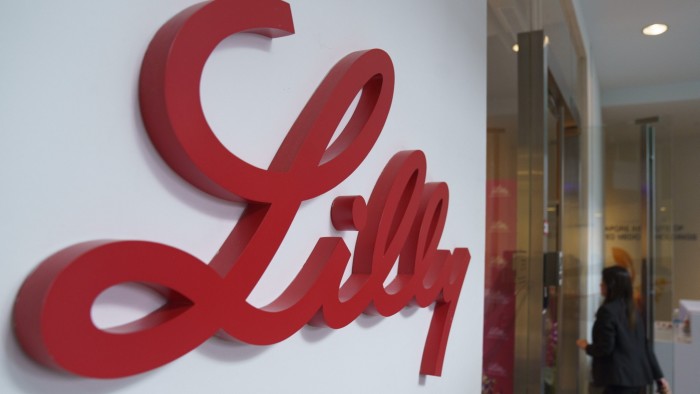Unlock the Editor’s Digest for free
Roula Khalaf, Editor of the FT, selects her favourite stories in this weekly newsletter.
Eli Lilly, the world’s largest drugmaker by market value, is in advanced talks to buy cancer-focused biotech Scorpion Therapeutics in a deal worth up to $2.5bn, according to people close to the discussions.
Eli Lilly’s pursuit of privately owned Scorpion is the latest example of its strategy of redistributing the huge windfall from its blockbuster diabetes and obesity drugs Mounjaro and Zepbound into diversifying its pipeline.
As part of the proposed terms, Eli Lilly would pay Boston-based Scorpion about $1bn up front followed by up to $1.5bn at a later date if certain performance milestones were met, according to three people familiar with the details.
A deal was likely to be clinched in the coming days ahead of the annual JPMorgan healthcare conference in San Francisco but was not guaranteed, the people added. Eli Lilly is being advised by JPMorgan.
Eli Lilly and JPMorgan declined to comment. Scorpion did not respond to requests for comment.
Scorpion’s lead drug inhibits a protein mutation that is a major driver of breast, gynaecological and head and neck cancers, affecting up 166,000 people each year in the US.
Existing drugs that target this protein are associated with a high degree of side effects, which Scorpion believes its medicine will reduce. Its candidate drug is currently in phase-two clinical trials.
Scorpion’s founders include cancer expert Keith Flaherty, the director of clinical research at Massachusetts General Hospital Cancer Center. Flaherty was a co-founder of Loxo Oncology, which was bought by Eli Lilly for $8bn in 2019.
Loxo Oncology became the centrepiece of Eli Lilly’s oncology strategy, however, the pharma group has also made several bolt-on acquisitions more recently.
In 2023, it paid $1.3bn for radiopharmaceutical biotech Point BioPharma, while last year it agreed partnerships with cancer-focused biotechs Aktis Oncology and Radionetics.
Advisers and competitors have been watching how Eli Lilly spends its revenues from its anti-obesity medications: so far it has mostly opted for smaller deals. It has also spent much of its cash flow on expanding its manufacturing capacity for its weight loss drugs.
Eli Lilly’s market capitalisation was just over $750bn as of early Friday afternoon in New York.
It is expected to generate about $46bn in sales this year, much of this from Mounjaro and Zepbound. Analysts project that the total market for weight-loss drugs could be worth up to $130bn in peak annual sales.
Eli Lilly chief executive Dave Ricks told the Financial Times in September: “We’ve been very successful with early, tuck-in deals . . . we can do more of that.”
Scorpion has raised $420mn from investors including venture capital firms Lightspeed Venture Partners, Fidelity Management and Wellington Management, according to data provider PitchBook, and was most recently valued at $845mn.
If the deal goes through, it will be the latest example of a bolt-acquisition in the run-up to the JPMorgan healthcare conference. Biogen on Friday went public with a $469mn unsolicited bid for biotech Sage Therapeutics, which has an approved drug for post-partum depression. The FT also reported this week that UK drugmaker GSK was nearing an up to $1bn deal for cancer biotech IDRx.


